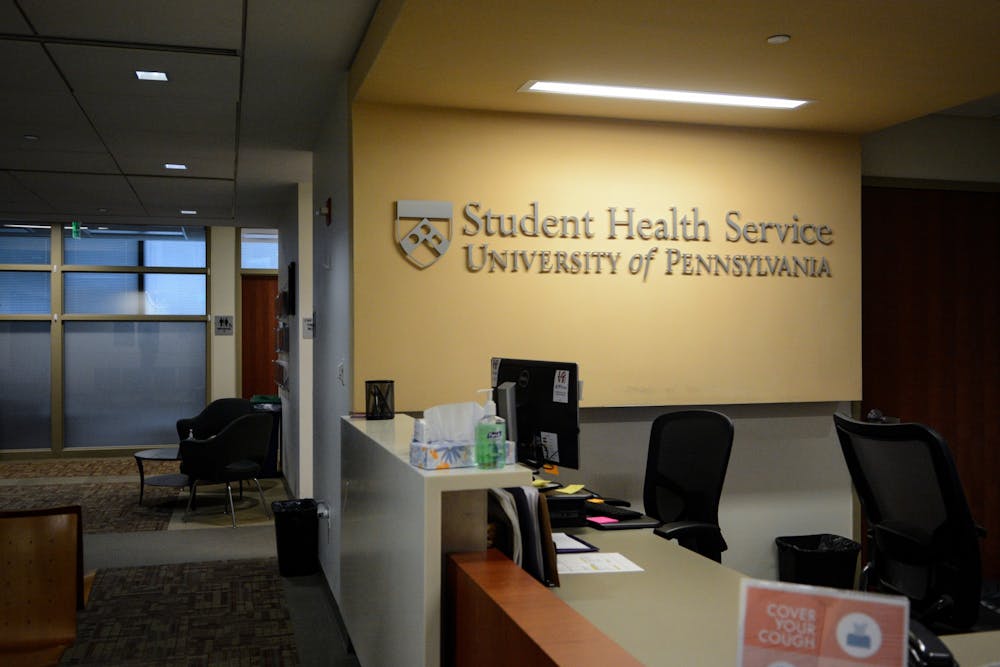Student visits to Wellness at Penn requesting contraception are returning to average numbers after increasing when the Supreme Court overturned Roe v. Wade.
Jackie Recktenwald, Wellness at Penn’s director of well-being initiatives, told The Daily Pennsylvanian that many students came to Wellness at Penn after the Dobbs decision in June, expressing concern about abortion becoming illegal around the country. Wellness at Penn offers a range of reproductive care, including pregnancy testing, STI and HIV testing, and counseling as well as referrals for different types of contraceptives and abortion methods.
While the medical services or referrals to specialty care offered to Penn students have not changed since the overturning of Roe v. Wade, Wellness at Penn has seen some changes in the care students request.
“Immediately after the Dobbs decision, there was an increase in visits for contraception in particular,” Executive Director of Student Health and Counseling William Adelman said, adding that the increase has since leveled back to average.
Perri Stella, a nurse practitioner with Wellness at Penn, said that some reproductive care methods can be prescribed through Student Health, and students can be referred to other practices for methods that are not provided on campus.
Penn students can receive information about continuing or terminating a pregnancy, and they can also be referred to appropriate gynecologists and obstetricians, Stella said. Wellness at Penn does not offer medical termination or termination prescription medication. Instead, it refers students to Penn Medicine and Planned Parenthood providers for these procedures.
Student Health also conducts post-abortion follow-up care, and students can communicate with recommended providers while receiving follow-up care at Wellness at Penn. The offerings also extend to other aspects of reproductive care, such as IUD placement check-ups or spontaneous miscarriage aftercare.
“Continuity of care will still be in place,” Stella said. “Our clinicians have really strong relationships with the folks that they're referring to.”
RELATED:
Public Health and Wellbeing renews programming on sleep and sexual health
Penn Reproductive Justice to increase activity through new educational, political initiatives
“Penn’s Declassified Sex Survival Guide,” which includes an overview of federal and state policy and guiding steps on how to research what care is available in certain locations, was created in 2019 and launched in 2020.
Penn's Declassified Sex Survival Guide is a six-week online course about sexual health, birth control options, and relationships. The program’s goal is to complement the clinical work of medical providers and give students agency over their decision-making surrounding reproductive health, Recktenwald said.
The program was inspired by content from the DP archives. Archived articles about students’ shared experience of seeking abortion illegally in past decades and student reactions to Roe in 1973 were used to inform the policy history and reproductive education in the Declassified program.
“What students were asking for in the 60s and 70s are very in line with what folks are looking for today,” Recktenwald said.
Due to the increase in demand from students, Wellness at Penn launched a workshop titled "Abortion Access: Implication for Institutes of Higher Education" following the Dobbs decision.
“Prior to the Dobbs decision, students did not request workshops specifically about reproductive rights. We now know this decision has brought about many questions and anxieties, so a workshop focused on this topic has since become one of our regular offerings,” Chief Wellness Officer Benoit Dubé said.
Despite differing positions on abortion policy, College first-year Anya Draves and Engineering first-year Yerahm Hong both said that they feel largely uninformed of the resources available to them as Penn students. Draves said that students are unaware of both their reproductive care options and how to access them.
“That could speak to how not well-advertised [the reproductive healthcare resources at Penn] are advertised on this campus," Hong said. "It could definitely be improved, opening up the conversation and teaching students."
Draves agreed with Hong and said that all students should be part of a push for greater awareness.
“Even for people who are not women [or] who don’t think they care about abortion as much, I think that it's something that literally everyone needs to be aware of," Draves said. "You never know when it's going to affect you personally.”









